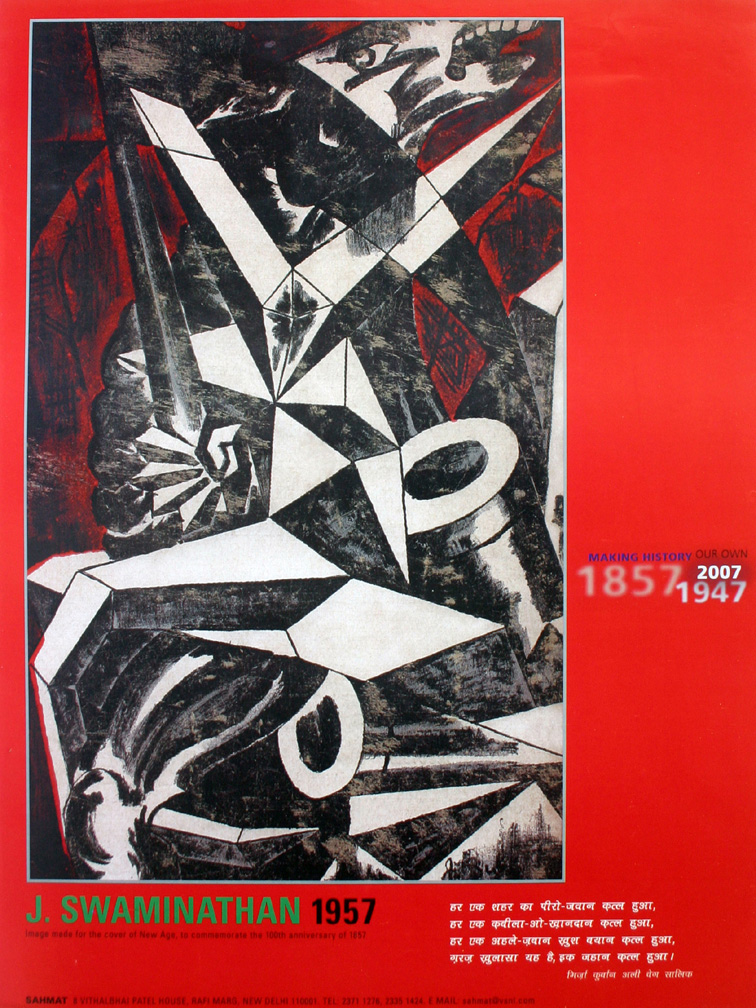January 26, 2016:
The Indian Republic. Long ago far away we committed ourselves to levelling its structure, redistributing wealth and reducing its importance through the public provision of water, good-enough healthcare, schools and universities, transport, sewerage…
We are all citizens of a constitutional republic. All. Dalit, Muslim, atheist, all of us, not just upper caste Hindu men, or people with enough money to buy land, industry, eminence. This Republic is premised on equality. Every inch of its land is ours. (So why do 93% of Indian farmers own less than two hectares—200 m x 100 m—of land?)
Each one of us owns this Republic. But today the Hindutvadis claim eminent domain. Even the 1% feels restless and threatened.
What would a cultural, social, political-economic structure committed to the equalling of India’s four thousand “communities” look like? One that recognises and repairs the violence and theft at our hands, the forced hunger; the cynical discounting of so many of us, boys and girls, in fields, factories, city pavements, in universities?
As we search for answers to these questions, there is a letter asking to be re-read. This letter to the Vice-Chancellor of Hyderabad Central University:
Sub: Solution for Dalit problem
Sir,
First, let me praise your dedicated take on the self-respect movements of Dalits in HCU Campus. When an ABVP president got questioned about his derogatory remarks on Dalits, your kind personal intervention into the issue is historic and exemplary. 5 Dalit students are “social boycotted” from campus spaces. Donald Trump will be a Lilliput in front of you. By seeing your commitment, I am tempted to give two suggestions as a token of banality:
1. Please serve 10 mg of Sodium Azide to all the Dalit students at the time of admission. With directions to use when they feel like reading Ambedkar.
2. Supply a nice rope to the rooms of all Dalit students from your companion, the great Chief Warden
As we, the scholars, PhD students have already passed that stage and already members of Dalit self-respect movement unfortunately, we here are left with no easy exit it seems. Hence, I request your highness to make preparations for the facility “EUTHANASIA” for students like me. And I wish you and the campus rest in peace forever.
Thanking you,
Yours sincerely,
Vemula R Chakravarti
What is “the difference between being dragged into the arena to face a battle to the death and walking into the arena with your head held high”? (For more about the Vice Chancellor, see here.)
Compared to the endless false oppositions our conversations are always eddying around, Rohith’s suicide was a throw of the dice.
How do we recover: Rohith, free spaces, reasoned discussion, from the thought that our children will be shocked at our political excesses, the first Census when a fifth of all respondents gave their religion as Hindu-Muslim, our sinking education systems…
The other day in Delhi, responding to a question about the dalit movement, Huchangi Prasad said, “We have a saying: only those who give birth know the pain of childbirth.” Huchangi Prasad is an M.A. student in journalism in Davenegere, Central Karnataka. He was attacked last year for writing a book of poems about his life, what this Republic means to him as the son of a devdasi, a dalit who has had to live with being the “other” of the Republic all his young life.
Rohith, Huchangi Prasad. How do we move towards our others, especially those we are used to regarding as our inferiors, in order to form alliances and communities, by listening to them?
We could start with an extract from Chittibabu Padavala’s statement:
Among us, younger generation of Dalit Marxists, Rohith alone is the man of action while most of the rest of us are either taking a break or retired. None ever doubted for a moment that it would be Rohith who would formulate and put to practice the right and effective political paradigm on central universities in Hindutva times. He embodied the rare combination of energy, intellect, principled conception of politics and open-mind among the campus Dalit leaders.
One of the reasons for which Rohith and others were persecuted by the administration is that he was seriously organising campaigns and programs to highlight persecution of, and discrimination against Muslims and worked to bring Dalits and Muslims together to combat it, on campus level. If these activists are not Dalits and their fight was not against Hindutva fascism, this false case and persecution of Dalit scholars would have attracted national and international attention and outcry.
If we don’t start, if we don’t listen to the voices of Chittibabu, Rohith, Huchangi Prasad and thousands of their brothers and sisters, we will remain stuck with the same old republic – not the one we thought we had earned in 1950.





